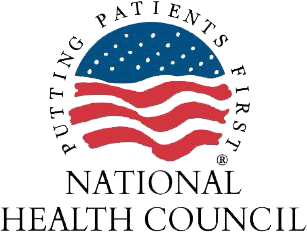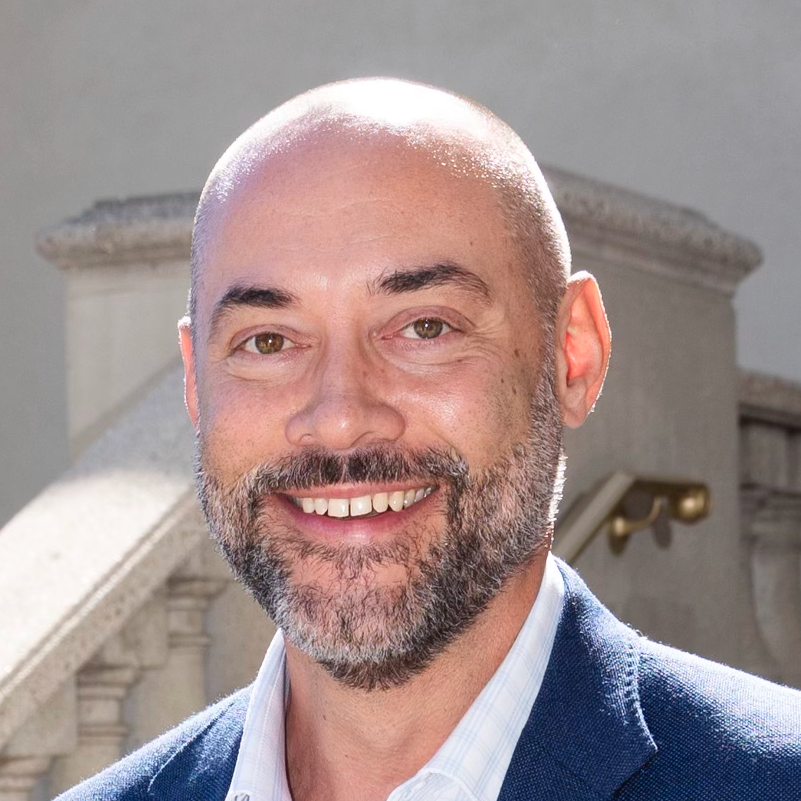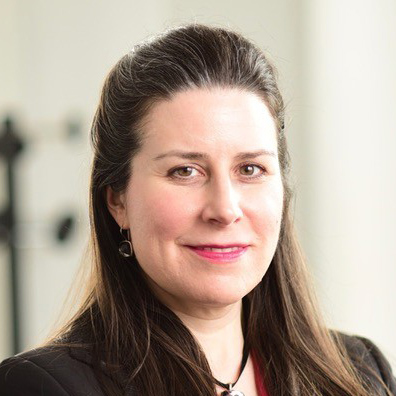2025 Fall Policy Summit
Centering Patient Values in Drug Policy: Transparency, Value, and Access
October 7, 2025 - Washington, DC (and Livestream)
The 2025 Fall Policy Summit convened leading voices in healthcare policy, research, patient advocacy, and industry to examine the implications of international reference pricing (IRP) through a patient-centered lens. As the U.S. faces rising drug costs and debates global pricing models, this summit challenged conventional narratives and put patients—those most directly impacted—at the heart of the conversation.
Grounded in the Center for Innovation & Value Research’s core values of transparency, equity, methodological rigor, and patient-centeredness, this meeting explored both the promises and pitfalls of importing international pricing strategies. Attendees participated in solution-focused dialogue on balancing cost containment and innovation while meeting the real-world needs of patients and caregivers.

Agenda
Tuesday, October 7,, 2025
9:30 AM || Registration and Coffee
10:00 AM || Welcome and Keynote Discussion: Will the Center Hold? Why Patient-Centered Value Must Anchor Debate Over Drug and Healthcare Pricing Reform
This opening keynote will set the stage by examining how patient-centered value and the evolving policy environment together shape the future of U.S. healthcare reform. By combining the patient perspective with a high-level view of Washington debates, the session will equip attendees to evaluate reform proposals through a patient-centered lens.
Moderator:
- Greg Daniel, PhD, MPH (Eli Lilly and Company)
Speakers:
- Jonathan Blum (USC Schaeffer Institute)
- Donna Cryer, JD (CryerHealth)
10:30 AM || International Reference Pricing, Health Technology Assessment, and Patient-Centered Health: Lessons from Abroad
A grounding conversation with international HTA leaders and stakeholders who have developed, implemented, and practiced under national value assessment coverage and pricing frameworks. The goal is to understand how these models work in practice, what they were designed to solve, where they fall short, especially for patients, and what lessons are (and aren’t) transferable to the U.S. context.
Speakers:
- Federico Augustovski, MD, MSc, PhD (Institute for Clinical Effectiveness and Health Policy)
- Professor Panos Kanavoos, PhD (London School of Economics)
- Margaret Kyle, PhD (Centre d’économie Industrielle Mines Paris and PSL Research University)
- Tiffany Westrich-Robertson (AiArthritis)
11:25 AM || Break
11:35 AM || What IRP Misses: Centering U.S. Patients in Drug Pricing Reform
Patient experiences and priorities are too often overlooked in drug pricing policies. This session explores current policy frameworks – including proposals like International Reference Pricing (IRP) that fall short of addressing the lived realities of U.S. patients. Panelists will provide examples of the unintended consequences of importing foreign pricing models into a complex U.S. healthcare system and show why meaningful reform must be informed by the realities of patients’ lives.
Speakers
- Kirsten Axelsen (DLA Piper and Charles River Associate)
- Kimberly Beer (National Health Council)
- Maia Laing (Sick Cells)
- Joseph Washington, PharmD, MS, MPH (Cencora)
- Richard Xie, PhD (RA Capital Management, LP)
12:30 PM || Lunch
1:30 PM || From Possibility to Progress: Advancing Patient-Centered Solutions for U.S. Drug Pricing Healthcare Reform
This session brings together the insights and momentum from earlier discussions to explore realistic, patient-informed policy options that provide the best opportunity for changing the status quo from outside the U.S. Panelists will propose and debate reform alternatives and the degree to which they align with preferences and values of U.S. patients and consumers.
The conversation will seek to move from promising concepts to real-world policy change, considering political, regulatory, and operational pathways. This session will directly inform a forthcoming policy white paper that outlines clear, actionable recommendations grounded in patient-centered value in the U.S. context.
Speakers:
- Sean Dickson, JD (AHIP)
- Dan Leonard (We Work For Health)
- Eleanor Perfetto, PhD, MS (University of Maryland)
- Josh Trent (Leavitt Partners)
2:45 PM || Closing Reflections: Insights, Momentum, and Next Steps
This final session will provide a thoughtful synthesis of the day’s discussions and surface key themes that emerged across sessions from global perspectives and patient priorities to actionable policy options. Rather than a passive recap, this will be an interactive and forward-focused dialogue that invites input from participants and positions them as ongoing partners in reform.
Speakers will reflect on how patient-centered value can serve as a guiding framework for drug pricing reform and offer next steps for collaboration, research, and engagement.
Keynotes:
- Jennifer Graff, PharmD (Innov8 Health Policy)
- Yasmeen Long, MA (Consultant & Strategic Advisor)
DETAILS
When:
Tuesday, October 7, 2025
9:30 AM – 3:30 PM ET
Where:
University of Southern California Capital Campus
1771 N Street NW
Washington, DC 20036
(In-Person and Livestream)
The 2025 Fall Policy Summit is partially funded through generous support from our sponsors. Unrestricted funds from the Center’s diverse membership also support this work.
Speakers
Gregory Daniel, PhD, MPH, serves as Vice President, Head of Policy Innovation, Evidence & Engagement at Eli Lilly and Company. In this role, Greg leads efforts in policy innovation and thought leadership, policy evidence development, and external engagement to promote innovation and improve access and affordability in healthcare. Additionally, Greg has led Eli Lilly’s Global Public Policy group, where he led coordination and management of public policy issues to the company and industry in critical areas such as prescription drug pricing, access, affordability, and global value-based healthcare.
Beyond his leadership at Eli Lilly, Greg contributes extensively to the scientific and policy fields. He is the Editor-in-Chief of Therapeutic Innovation and Regulatory Science (TIRS), the scientific, peer-reviewed journal of DIA. He also serves on the Board of Directors and is a Past Chair for the Center for Innovation & Value Research (CIVR). His academic contributions include roles as Adjunct Associate Professor at the Eshelman School of Pharmacy, University of North Carolina at Chapel Hill, and Visiting Scholar at the Center of Innovation in Regulatory Science at the Duke-National University of Singapore.
Greg has 25 years of experience and expertise leading pharmaceutical and medical device evidence and public policy. Prior to joining Lilly, he held leadership and executive roles within the medical device industry, academia, policy think tanks, and the commercial payer industry. At Edwards Lifesciences, he was Head of US Healthcare Policy. He also held roles as Deputy Center Director and Clinical Professor at the Duke-Margolis Institute for Health Policy, and as Fellow and Managing Director at the Center for Health Policy at the Brookings Institution. Prior to that, Greg directed real-world evidence generation, health economics and outcomes research, and pharmacoepidemiology studies as Vice President, Government and Academic Research, at Carelon (formerly HealthCore and a subsidiary of Elevance).
Greg earned his PhD in pharmaceutical economics, policy, and outcomes from the University of Arizona. Additionally, he holds an MPH with a focus in biostatistics, along with an MS and BS in Pharmacy, all from The Ohio State University.
Dr. Graff is the founder of Innov8 Health Policy, where she helps biopharmaceutical companies and patient advocacy groups turn the confusion and complexity into actions so they can navigate, translate, and modernize drug payment policies, enabling faster patient access, clearer coverage pathways, and improving incentives for innovation.
With leadership roles spanning managed care pharmacy (Academy of Managed Care Pharmacy), pharmaceutical policy research think tank (National Pharmaceutical Council), and leading industry health economics and outcomes research teams (MedImmune, Pfizer), Dr. Graff brings a perspective that allows her to anticipate challenges from payers and industry with evidence-informed policies.
As senior director and head of professional affairs at AMCP, she led strategic initiatives and best practices in how managed care pharmacy evaluates, covers, and pays for medications and provides care to their members. During her decade-plus tenure at the National Pharmaceutical Council, a health policy research organization supported by the leading biopharmaceutical companies, she spearheaded policy research on evidence generation, formulary design, and innovative reimbursement models.
Dr. Graff's approach combines deep technical expertise with practical implementation experience. Her 35+ peer-reviewed publications and active participation in US and international multi-stakeholder groups ensure that her strategies reflect the latest evidence and payment trends. Her industry experience means she understands what works in practice and the complexities of change management.
Kirsten is a biopharmaceutical advisor who works with leaders in healthcare helping to develop business practices that lead to affordable access to medicines, positive public perception, and sustained investment in scientific advancement. her guidance is grounded in analytics and empirical evidence and a keen understanding of how the actors in the life sciences respond to reimbursement and regulation.
Kirsten was on the leadership team of Pfizer Inc's $30 billion global innovative pharmaceutical business, where she led Strategy and Business Evaluation. Previously, Kirsten led Pfizer's Global Policy team where she built a team dedicated to policy impact analytics. She is an Aspen Institute Health Innovator Fellow, and a consultant to life sciences companies, acting as a senior advisor to Charles River Associates and DLA Piper. She is a founder of the Preparedness and Treatment Equity Coalition and Board member Aequitas Health.
Yasmeen Long, M.A., is a nationally recognized expert in biomedical research, health outcomes, domestic and global health policy, patient advocacy, and stakeholder engagement. Long has earned media featured in Forbes, Modern Healthcare, Bloomberg Law, Endpoints News, National Journal, Science News, The Scientist Magazine, and Regulatory Focus. Long is also recognized as a consultant and strategic advisor for health, biotechnology, research organizations, individuals, and graduate students. Long was a former director at FasterCures, at the Milken Institute, a global think tank. She created, developed, and led the first health equity and diversity in clinical trials portfolio at FasterCures during the height of the COVID-19 pandemic and thereafter. Long’s impactful work led to federal policy development and implementation for biomedical research and innovation in drug development.
Prior to joining the Milken Institute, Long served as the co-director of the Health Policy Fellowships and Leadership Programs Office at the National Academies of Sciences, Engineering, and Medicine. She also served as a program officer at the Patient-Centered Outcomes Research Institute (PCORI) where she executed strategic objectives to advance patient and stakeholder engagement in patient-centered outcomes and clinical comparative effectiveness research. Prior to PCORI, she directed global health policy and tobacco control programs in the U.S., Bangladesh, China, Egypt, India, Indonesia, and Turkey, at the Johns Hopkins Bloomberg School of Public Health in collaboration with the Bloomberg Philanthropies and the World Health Organization.
Earlier in her career, she managed research programs at the Johns Hopkins School of Medicine, and the Massachusetts General Hospital and Harvard Medical School in the following areas: clinical research, chronic and infectious disease, and patient-physician communication in primary care. Long earned a Bachelor’s of Science degree in health sciences and management from Howard University and a Master’s degree in women’s health and sociology from Suffolk University.
Josh Trent is the CEO of Leavitt Partners, based in Leavitt Partners’ Washington, D.C. office. Josh has more than a decade and a half of experience in the federal government—from the White House, to the U.S. Department of Health and Human Services, to the U.S. Senate and U.S. House on Capitol Hill.
In his role at Leavitt Partners, Josh develops and manages multi-sector alliances and advises clients throughout the health care sector on federal health care policy and strategy. He specializes in public insurance under Medicare, Medicaid, the Children’s Health Insurance Program, commercial health insurance, the 340B program, and the Affordable Care Act.
Prior to joining Leavitt Partners, Josh served as Chief Health Counsel for Chairman Greg Walden of the Committee on Energy and Commerce of the U.S. House of Representatives. In that role, Josh was the lead House staffer for the landmark legislation to combat the opioid crisis, The SUPPORT Act (P.L. 115-271). He also led the House’s work to reauthorize The Pandemic and All-Hazards Preparedness Act, which was eventually enacted the following year (P.L. 116-22).
Josh previously served under both Walden and Chairman Fred Upton as Deputy Chief Health Counsel. In this role, he played a key part in crafting the Medicaid, Medicare, and state Children’s Health Insurance Program (CHIP) provisions in the House’s Bipartisan Budget Act (P.L. 115-123), and he led the House’s work to enact the longest extension of the CHIP in the history of the program (P.L. 115-120). Previously, as Professional Staff under Chairman Upton, Josh assisted in the development and passage of the Comprehensive Addiction and Recovery Act (P.L. 114-198) and the sweeping law to advance the discovery, development, and delivery of cures and treatments, The 21stCentury Cures Act (P.L.114-255).
Prior to working in the House, Josh served for five years as Health Policy Advisor for U.S. Senator Tom Coburn (R-OK). In that role, Josh was involved in the legislative process leading to the enactment of the Affordable Care Act.
Before coming to Capitol Hill, Josh spent six years in the administration of President George W. Bush, including three years as an executive recruiter in the Office of Presidential Personnel at the White House helping identify and recruit individuals for senior Administration roles. He also spent a year and a half as deputy director of the Office of Refugee Resettlement at the U.S. Department of Health and Human Services.Josh received his bachelor of arts from Union University and received his master’s degree in international politics from the University of Bath in Bath, England.
Dr. Perfetto is a recognized caregiver and patient advocate. She is a current member of the Brain Injury Association of America's Board of Directors and past secretary and governance-committee chair, as well as past board chair for the Concession Legacy Foundation. She has worked in government, industry, consulting, academic, and non-profit organizations. Today, she consults on gathering and leveraging patient experience data to inform product development, clinical outcome assessment selection/development, and patient-centered value assessment. She is Professor Emerita at the University of Maryland School of Pharmacy and served as the National Health Council's Interim CEO and Executive Vice President for Strategic Initiatives. Prior, she was with Pfizer as Senior Director, Federal Government Relations. Recently, she served as the International Society for Pharmacoeconomics and Outcomes Research 2024 Patient Summit co-chair. Dr. Perfetto holds BS and MS degrees in pharmacy from the University of Rhode Island, and a PhD from the University of North Carolina at Chapel Hill School of Public Health, with concentrations in health policy and epidemiology.
Dan Leonard serves as Executive Director of We Work For Health (WWFH). With over 20 years of management associations – including the National Pharmaceutical Council and the Association for Accessible Medicines – at the highest levels, Leonard has had a unique 360-degree view of the healthcare ecosystem in America from the payor, innovative and generic pharma, and patient perspectives. Leonard is a leader in the health care association and policy environment where he works with corporations, nonprofit associations, and professional societies in the healthcare space on strategic planning, advocacy, policy and public affairs.
Sean Dickson leads pharmaceutical policy at AHIP, the trade association for health plans. Throughout his career, Sean has represented numerous stakeholders in pharmaceutical policy, including branded manufacturers, state public health programs, and health plans. Prior to AHIP, Sean led pharmaceutical policy research at the Pew Charitable Trusts and the West Health Policy Center. Sean's academic work has been published in Health Affairs, JAMA International Medicine, JAMA Open, JAMA Health Forum, and the Journal of Managed Care and Specialty Pharmacy, among others.
Margaret Kyle (Mines Paris and CEPR) currently holds the Chair in Intellectual Property and Markets for Technology at Mines Paris - PSL. Her research concerns innovation, productivity and competition. Her papers have been published in a number of journals, including the Quarterly Journal of Economics, Review of Economics and Statistics, Journal of Economic Perspectives, RAND Journal of Economics, Journal of Public Economics, and Management Science. In addition to acting as associate editor of the International Journal of Industrial Organizations, she is a member of the Conseil National de Productivité in France.
Tiffany Westrich-Robertson is the CEO and original founder of AiArthritis (the International Foundation for Autoimmune & Autoinflammatory Arthritis) and a person living with axial spondyloarthritis. She also leads the Ensuring Access through Collaborative Health (EACH) and associated Patient Inclusion Council (PIC), a national, two-part, disease agnostic coalition advocating for drug affordability policies that benefit patients.
In 2015, she authored the Ethics of Step Therapy paper, concluding preferred drug recommendations are biased towards patients who meet general patient population standards. For the remaining 'atypical' patients, the onus for choosing therapies should default on the doctor, who is ethically obligated to treat the unique characteristics of the patient. These findings have influenced her work to advocate in favor of fair access to treatments that are considerate of individual needs, and cognizant that personalized and precision medicine is on the horizon. Since then, Tiffany has been laser focused on Precision Medicine, Value Assessments, and data that drives policy decisions.
Tiffany is a former college educator - winning "Favorite Teacher" twice in10 years, a trained focus group moderator, and an expert in Research Advocacy (data to drive public policy). She serves on many advisory panels, including the Center for Innovation & Value Research Patient Council and is the Patient Co-Chair for the ICER Patient Council.
Federico Augustovski is the current Director of Health Economic Evaluations and Technology Assessment at the Institute for Clinical Effectiveness and Health Policy (IECS), an independent non-profit organization affiliated with the University of Buenos Aires, a CONICET (National Scientific and Technical Research Council) center, and one of the few INAHTA Health Technology Assessments agencies in Latin America. He is the Director of the WHO Collaborating Centre in Health Technology Assessment and Economic Evaluations at IECS. He is a Professor of Public Health at the School of Public Health of the University of Buenos Aires, where he teaches courses for graduate and postgraduate students in Decision Sciences; Patient Reported Outcomes (PRO) Development in Health as well as Health Economic Evaluations.
He was elected President of the International Society for Pharmaceutical and Outcomes Research ISPOR (2017-2020). He is also the founding Editor in Chief for Latin America of Value in Health Regional Issues (VIHRI), the ISPOR peer reviewed journal for Latin America, Asia, and Central & Eastern Europe and Africa. He is the Director of the PAHO affiliated PROVAC Center of Excellence for decision making in vaccines. He leads a multidisciplinary team devoted to clinical and economic evaluations of new and existing preventive, diagnostic and therapeutic technologies that works doing research, education, and technical support with public and private health decision makers in Latin America.
He got his Medical Degree with honors at the University of Buenos Aires (1986-1991); and he is a specialist in Family Medicine. He practiced family medicine and was a staff physician for more than 20 years at the Family and Community Medicine Division of the Hospital Italiano de Buenos Aires (the leading academic non-profit hospital in Argentina). He got his M.Sc. in Epidemiology (Harvard School of Public Health, 1997-1999). He was an Alban Scholar of the European Union in Health Economics (2003-2004) getting research and training experience at the Centre for Health Economics at York University in the UK.
His research production, and publication in international peer-reviewed journals (with more than 185 PubMed indexed papers), concentrates in Health Technology Assessments, Health Economic Evaluations (i.e., multicolony studies in Latin America - both model-based or individual patient level piggyback studies-, PRO and preference status measures and validation (i.e. derivation of Argentine, Uruguay or Peruvian weights for the EQ-5D, Argentine SF-36 validation, or discrete choice experiements).
Donna R. Cryer, J.D., is Chief Patient Officer and one of the founding partners of CryerHealth, a boutique consulting firm now entering its 15th year, a pioneer in the science of patient engagement. Mrs. Cryer is also the Founder of Global Liver Institute (GLI), the premier patient-driven nonprofit advocacy organization which continues to shape and define the field of liver health across five continents. Driven by her own journey through pediatric IBD, liver transplantation, and orthopedic complications of treatment, Mrs. Cryer has raised more than $30 million for liver health initiatives directly, and uses her business and legal acumen to de-risk investment, convening and facilitating more than 200 organizations towards collaborative multi-stakeholder agenda setting and action, building strategic approaches to therapeutic and diagnostic innovation, regulation, adoption and payment structures for best practices to optimize access, outcomes, and value.
Mrs. Cryer has extensive advisory experience for charitable corporate, and government entities, currently serving on the Board of Trustees for Sibley Memorial Hospital/Johns Hopkins Medicine. She has more than a dozen peer-reviewed publications across digestive, metabolic, and healthcare quality journals. Mrs. Cryer was on the Founding Board of the Center for Innovation and Value Research and member of ISPOR.
Her expertise and effectiveness in advancing the voice of patients have been recognized by the United States Congress and White House. She has received the American College of Gastroenterology (ACG) Disruptive Innovator Award, the Global Genes RARE Champions of Hope Founder's Award and the American Association for the Study of the Liver (AASLD) Distinguished Advocacy Service Award. Health2.0 named her the Top 10 Patients Who Make an Impact, and PharmaVoice featured Mrs. Cryer as one of the100 Most Inspiring People.
Equipped with a BA from Harvard, JD from Georgetown University Law Center, and recent Certificate in AI in Healthcare from the MIT Sloan School of Business, Mrs. Cryer serves as a fierce advocate for the transformative potential of patient engagement in health policy, research, data, and system design.
Jonathan (Jon) Blum is one of the nation's foremost experts on the policy development and administration of federal health insurance and financing programs. He is the co-founder and co-managing partner of Health Transformation Strategies, a strategic advisory and consulting firm, supporting leading healthcare companies and organizations. He is also a Non-Resident Senior Scholar at the USC Schaeffer Center for Health Policy and Economics.
More recently, Jon served as the Principal Deputy Administrator and Chief Operating Officer for the Centers for Medicare & Medicaid Services (CMS). In this dual role, Jon lead CMS's program policy planning and implementation and day-to-day operations for the entire agency. Jon also served as CMS's Deputy Administrator and Director of the Center for Medicare during the Obama Administration, leading the agency's Medicare payment and delivery reform strategies and the overall management of the Medicare program.
In addition to his federal service at CMS, Jon was the Executive Vice President for Medical Affairs at CareFirst BlueCross BlueShield, worked as a strategy and management consultant at Avalere Health and Health Management Associates, served on the professional staff of the Senate Finance Committee and worked as a Medicare program analyst at the Office of Management and Budget.
Jon serves and has served on a multiple boards and advisory committees for private companies, non-profit organizations, and academic institutions, all of which have missions to improve access, delivery, and value of health care services.
Jon is a graduate of the Harvard Kennedy School and the University of Pennsylvania. He and his family reside in Takoma Park, Maryland.
Joseph Washington, PharmD, MS, MPH is a Manager in Market Access Commercialization at Cencora (formerly AmerisourceBergen). In this role, he supports several mid to large biopharmaceutical companies to drive formulary access for their assets. His responsibilities include leading scientific direction and tactical development of projects in diverse disease areas.
Dr. Washington started his career at Cencora with a Health Outcomes and Market Access fellowship. Prior to joining Cencora, Dr. Washington served in both policy and public health roles. In the 117th Congress he led the distribution strategy for COVID-19 vaccines across Florida District 9. And he worked at the Centers for Disease Control and Prevention in the Division of Diabetes Translation.
Dr. Washington received his Doctor of Pharmacy in conjunction with his Master of Public Health degree from the University of Florida. During that time, he served as the National President of the Student National Pharmaceutical Association and was honored with the Townes R. Leigh Award for leadership. He also completed a Master of Science degree in Pharmaceutical Outcomes and Policy, with a concentration in applied pharmacoeconomics, from the University of Florida.
Richard Xie, PhD is a Senior Health Economist at RA Capital. In his current role, Richard is spearheading the effort to communicate investors’ and portfolio companies’ value proposition to payors, policymakers, and society through comprehensive value assessment practices and generalized cost-effectiveness analysis (GCEA) method development. He also serves as Senior Economic and Policy Advisor to No Patient Left Behind, a non-profit committed to lower out-of-pocket costs for patients and preserve incentives for innovation. Prior to joining RA, Richard was Director of Research at the Innovation and Value Initiative (IVI), a non-profit research organization dedicated to advancing methods and practices of health technology assessment. Before IVI, he was a consultant at the Analysis Group, assisting clients in the pharmaceutical industry with their value demonstration efforts at product launches. Richard earned his doctorate in economics from the University of Southern California and his bachelor's and master's degrees from New York University.
Maia brings a unique combination of professional expertise and personal experience that will be invaluable in advancing our mission to improve the quality of life and raise awareness for those affected by sickle cell disease.
As an individual living with sickle cell disease, Maia has a deeply personal connection to the cause and a profound understanding of the challenges faced by those navigating life with this condition. This perspective has fueled her passion for healthcare advocacy, driving her to work tirelessly to improve healthcare access and outcomes for those living with chronic conditions. Her career in healthcare includes over 25 years of experience in both public and private sectors, where she has dedicated herself to championing health equity and patient-centered care.
During her tenure at the U.S. Department of Health and Human Services (HHS), Maia played a pivotal role in developing programs that addressed health disparities and expanded access to care for underserved populations. In addition to her public sector work, she held strategic leadership roles at UnitedHealth Group and Optum, where she contributed to initiatives focused on transforming healthcare delivery and advancing value-based care. Her work at Optum involved developing data-driven healthcare solutions and health equity initiatives that align with her commitment to advocating for those affected by chronic conditions, including sickle cell disease.
Maia holds an MBA from Simmons Graduate School of Management in Boston, MA and has spearheaded several impactful initiatives aimed at reducing health disparities and supporting vulnerable populations. Her combined experience across HHS, UnitedHealth Group, and Optum equips her with a deep understanding of healthcare policy, corporate strategy, and the complexities of navigating healthcare systems.
Maia’s personal journey and professional dedication align perfectly with Sick Cells’ mission to amplify patient voices and advocate for equitable healthcare. In her free time, she continues her advocacy work, further underscoring her commitment to creating a more inclusive, accessible healthcare system for all.
Kimberly Beer is the Senior Vice President of Policy & External Affairs at the National Health Council (NHC), where she leads strategic policy initiatives and advocacy efforts to improve the lives of individuals with chronic conditions and disabilities. As a member of the executive leadership team, she drives the NHC's mission to ensure access to high-quality, affordable healthcare for all Americans.
Previously Kim served as the Senior Director of Public Policy at the Chistopher & Dana Reeve Foundation, where she led legislative, and advocacy efforts focused on paralysis and disability issues. She worked to raise awareness, secure federal funding for the National Paralysis Resource Center, and ensured access to care for those impacted by paralysis.
Kim’s experience in public policy advocacy also includes roles as Director of Public Policy at Susan G. Komen, Director of Advocacy at the Arthritis Foundation, and Assistant Director of Federal Affairs at the American Academy of Physician Assistants (now Associates). Earlier in her career, she served as Senior Legislative Assistant to Governor Pedro Rosselló of Puerto Rico and as Legislative Assistant to Congressman Luis G. Fortuño.
Kim holds a Bachelor of Arts in Politics from The Catholic University, a Master of Arts in Counseling Psychology from Argosy University, and Post-Master’s Certificates in Clinical Community Counseling and At-Risk Counseling from The Johns Hopkins University. Additionally, for nearly twenty years, she serves as a Special Needs Counselor for Potomac Community Resources, providing respite care and support for teens and adults with developmental differences.
* Not Pictured: Professor Panos Kanavoos, PhD (London School of Economics)
Event Sponsors and Partners


























